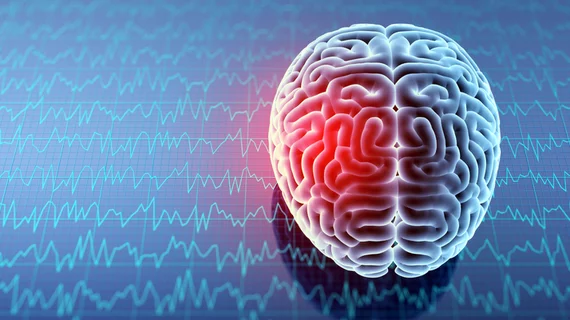Artificial intelligence shows promise predicting patients’ need for CT after traumatic brain injury
An artificial intelligence model could potentially predict pediatric patients’ need for CT after a mild traumatic brain injury, according to research published Saturday in JACR.
Only about 10% of such scans end up revealing positive findings for TBI. This raises of possible overuse of imaging and unnecessary radiation exposure among children, Australian imaging experts noted.
Tools including the Pediatric Emergency Care Applied Research Network (PECARN) clinical rule could help to eliminate unnecessary imaging exams. But they can suffer from potential limitations in their accuracy.
Scientists with the University of Queensland, Brisbane, developed a “deep artificial neural network” to improve the selection process. Applying it to a dataset of almost 15,000 patients produced promising early returns. AI resulted in 98.6% sensitivity and 99.7% specificity when predicting the need for CT utilizing the parameters from the previously mentioned clinical rule.
Corresponding author Fatima A. Nasrallah, PhD, called the initial findings “promising” and believes AI has the potential to improve patient management in these scenarios while lessening the burden on physicians.
“This model, if clinically implemented and validated, will aid decision making for clinicians and assist in reducing unnecessary radiation exposure to children,” Nasrallah, with the Queensland Brain Institute, and co-authors concluded.
The research team tested their AI tool on patient data collected between 2004-2006 as part of PECARN—a federally funded, multi-site U.S. network for research in pediatric emergency medicine. Those who met the criteria were under age 18 and had score of 14 or higher on the Glasgow Coma Scale, meaning they are alert and responsive.
You can read much more about their work in the Journal of the American College of Radiology here.

